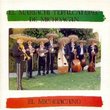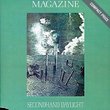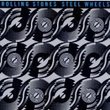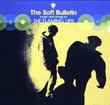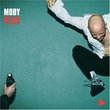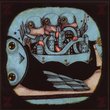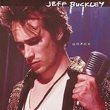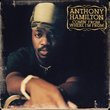| All Artists: Klaus Schulze Title: Timewind Members Wishing: 4 Total Copies: 0 Label: Universal/Brain Album Type: Import Genres: Dance & Electronic, Alternative Rock, Jazz, New Age, Rock Styles: Electronica, Progressive, Progressive Rock Number of Discs: 1 SwapaCD Credits: 1 UPCs: 017046180726, 042283312821, 077778749622, 5012981243623 |
Search - Klaus Schulze :: Timewind
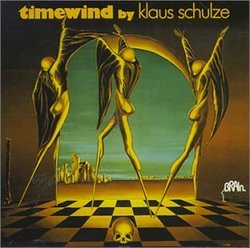 | Klaus Schulze Timewind Genres: Dance & Electronic, Alternative Rock, Jazz, New Age, Rock
|
Larger Image |
CD DetailsSimilar CDs
Similarly Requested CDs
|
CD ReviewsKlaus Schulze's Breakthrough Masterpiece!! Louie Bourland | Garden Grove CA | 05/10/2003 (5 out of 5 stars) ""Timewind" is the album that put Klaus Schulze on the map as a major pioneer of electronic music. Recorded and released in 1975, this album has gone on to be a cornerstone of sorts. Many synthesizer artists such as Vangelis, Jean-Michel Jarre and Kitaro followed suit with music that is not too disimilar to "Timewind". In the days of vinyl LPs, this album was quite lengthy clocking in at 59 minutes with each side running at 30 minutes apiece. The opening half consists of the dynamic sequencer tour-de-force "Bayreuth Return". This long piece was recorded live directly to a 2-track tape machine in Klaus' bedroom (!!!). It is quite a remarkable piece of work as there were no digital computerized sequencers or synths at the time. The rhythms are floating and hynotic throughout. Its etherial chord washes are extraordinary. The only thing that I found bothersome about the piece is the way it ends. It's an abrupt edit into a loud crashing sound. It's quite possible that this piece was much longer than its 30 minutes but was cut short due to vinyl constraints. The second half, "Wahnfried 1883", is Klaus' tribute to composer Richard Wagner. Over the course of its 28 minutes, we are treated to a massive cloud of synthetic wind sounds and heavy dark long-held chords. There is no rhythm to this piece, just a dark ambient structure. This is great mood music for relaxing, reading a book or studying. This piece can really take you somewhere if you have the imagination for it. After all these years, "Timewind" is still Klaus Schulze's ultimate magnum-opus. It comes as no surprise that this album won the French Grand Prix shortly after its release in 1975. To find some of the roots of where todays electronic music comes from, one should look no further than "Timewind". Here we are in 2003 and this album still stands the test of time." A gem from a different era Hammond | California, USA | 03/01/2001 (5 out of 5 stars) "This album plus Klaus's other epic masterpiece, Floating, are unique accomplishments in music. It's a powerful piece which takes one traveling through alien landscapes buried deep within our subconscious minds. The many layers of complex and yet soothing arrangements always have something new to be discovered, even after all these years since it came out. Although Klaus may not agree as he once wrote back in response to a fan letter I had sent him, he has since abandoned this style and gone to a more mainstream route producing music that's not anywhere near as compelling. This album was a spectacular hit among electronic music fans and made quite a splash in Europe. Timewind goes back to the golden age of space music which also happened to be the beginning of it. The forerunners of it didn't abide by the laws of economics yet. They made music that told a story in as long a time as an LP would allow, unlike today where eveyrthing has to be in bite sized chunks of 3-5 minutes. It's with that kind of frontiering mindset that a one man band does what entire orchestras can't sometimes: create music so cohesive and rich that one never tires of it, and it always has the same grand impact. Timewind is full of sequnces that you may actually find in his other work too. Dig-it, Dune, Sense, Body Love either replicate or have similar sequences, but none is compelling nor impactful. This work remains in its own pristine corner as a jewel of an album that has never been surpassed in creativity and imagination. Bravos to Klaus for this brilliant work." The definitive space music. Felix Matathias | Manhattan, NY, USA | 07/29/2000 (5 out of 5 stars) "I have been listening for a long time to Vangelis and Jarre music. I am a big fun of their early works, the era of analog synthesizers and their really "out of this world" - very intelectual music. I short of categorized this music to my mind as "the outer space music".I was very dissapointed that nobody writes this kind of music any more. Its a dead species. The latest albums of Vangelis and Jarre are dissapointing and nobody seems to be able to continue their work. I felt really frustrated that I couldnt find any more of the music that I love.So eventually I had to look back in the past and find out of composers that wrote similar music in the early 70's. Thats how I discovered Claus Schulze. I was amazed. I couldnt believe in my ears. Sensational music, it makes you think, search, discover. Its 100% "outer space music" and guess what: I dare to say that his work overshadows at least Jarre's work in terms of depth and spiritualism. This album in particular is a masterpiece. It was conceived in some other galaxy and performed by Schulze on Earth. It is the ultimate "space music". I recommend it to all the serious funs of this particular genre. The music is tranquile and unforced, there is no beat in the album, it kind of drifts in the vacuum of the outer space. It is not a massive supernova explosion but rather a GENESIS OF A NEW STAR. You have to listen to this music a lot of times in order to appreciate it. People of the trade understand what I mean. It is like a philosophy book. You have to give it some time. But after you manage to release its power it will serve you as the ultimate spaceship to the heavens. (Ok back to earth now)This album is a masterpiece!"
|

 Track Listings (2) - Disc #1
Track Listings (2) - Disc #1